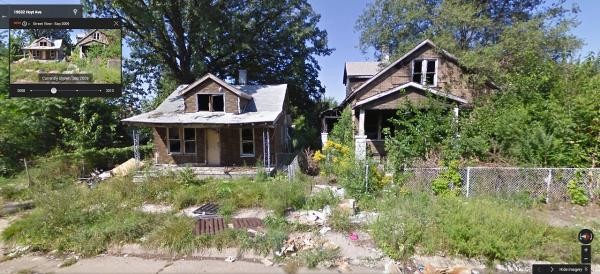As hedge fund buys the farms prices rise but what happens come the downturn Crain s Detroit
Post on: 14 Май, 2015 No Comment

Photo by VINCENT MUNDY/Bloomberg The hedge fund Ceres Partners owns about a dozen farms, most in southwest Michigan, and looks to add more.
When Roger Betz is not helping other farmers in his job as a Michigan State University Extension farm management educator for Southwest Michigan, he tends a few acres of his own in Eaton County near Lansing. Every year, he buys just a little more land, getting ready for when he retires from his day job and spends all his time doing what he loves.
But Betz sees a threat on the horizon to small farmers such as himself: competition from hedge-fund-owned farms that could drive him out of business. Land speculation tends to increase the price of not only the land but also the food it produces.
And when that upward trend reverses itself, Betz fears, deep-pocketed investors can better weather the storm than can small, family-owned Michigan farmers.
According to the annual Michigan Land Value survey conducted in the spring of 2010 by the department of agricultural, food, and resource economics at Michigan State University. farmland values increased 1.4 percent from spring 2009. The Federal Reserve Bank of Chicago puts the increase at about 10 percent from Oct.1, 2009 to Oct.1, 2010.
Both sources expect the 2011 numbers to reflect further increases.
The price of Michigan farmland has gone up every year since 1987, with the exception of a brief dip between 2008 and 2009.
Betz worries about how this upward trend can be sustained and fears a volatile market will spell the end of Michigans traditional small, proprietor-owned farms and the communities they serve.
Perry Vieth, president of Granger, Ind.-based Ceres Partners. is one of the investors feared by Betz and many of the farmers Betz meets every day. Ceres owns 63 farms in Illinois, Indiana and Michigan. About a dozen are in the Great Lakes State, primarily in the southwest Michigan counties of St. Joseph, Cass and Van Buren.
Vieth left his day job as an institutional money manager in Boston about five years ago to focus on what he found to be an intriguing, inflation-protected asset: land. The more Vieth looked into his financial crystal ball, the more he was convinced that not only will farmland increase in value, but this increase also will be fed by a rising middle class in Asia.
They want to eat like Americans, Vieth said. That means more American farm products.
At first, colleagues wondered about Vieths sanity. Farmland? Are you serious?
But, since then, as the land and food-price boom attracted more attention, colleagues wanted to know how they could get in. Merrill Lynch might have a fund that buys ag stocks such as John Deere and Monsanto. Vieth said, but there are very few direct plays where you can own a piece of the land itself.
So, fueled by friends, family and a few high-net-worth individuals, Ceres Partners has spent the past five years going on a farmland shopping spree. Right now, Vieth said, Ceres has about $70 million in assets and has a pipeline of an additional $50 million worth of farmland that the investment firm looks to acquire.
Most of the time, Vieth said, Ceres buys land that is already being farmed, but also occasionally from estates or trusts land that otherwise would sit unused. Ceres buys the land and leases it to the farmer, who continues to work the land. Only now they can do it more efficiently if they dont own all that real estate.
Vieth compares it to when IBM Corp. sold off a lot of its real estate about a dozen years ago, allowing the technology company to concentrate all its capital on its core business.
They can get a higher return on their equity by using the capital they do have in production and equipment, Vieth said. Rather than spend $2 million to buy the land, the farmer can buy $2 million worth of seed or fertilizer.
The farmers love us because were not competitors. Were partners, Vieth said. Farmers call him all the time, he said, trying to get in on the network. Ceres improves the farm, adding irrigation and other features.
The way that farmer Betz sees it, though, thats part of the problem. He admits that land is a good, solid long-term investment. Land in general does not suffer from the same kinds of ups and downs that other investments have seen.
But that is not true of food prices which, while on an upward trend, also tend to be more volatile. Michigan farmers fear that speculation fuels even more volatility in food prices.
Right now, prices are rising and investors speculatively buy more shares, which raises food prices even more. But Betz is convinced that what comes up, must come down. Farmers with long memories recall the early 80s, when rising land values suddenly crashed, leaving many farmers in the red. Michigans farm economy did not recover until 1987.
Conditions are different now, with high commodity prices keeping pace with high land values. If a sudden dip recurs, deep-pocketed investors can weather the downturn. But it would ruin small-farm owners, who have about 70 percent of their savings wrapped up in their land and capital costs.
And that especially would be bad news for farmers in Michigan, a state dominated by small farms owned by private individuals.
According to the figures from the U.S. Department of Agriculture. the average farm size in Michigan is 179 acres. In Indiana, its 242 acres and Illinois, 348. Michigan also has a higher percentage of farmers who own their farms.

Matt Kapp, a land use specialist with the Michigan Farm Bureau. said he cant argue with the simple economic physics of it all.
Sooner or later, it has to decline, he said. Right now, though, things are good, with outside investors helping drive up the costs of farmland.
For now, the overall impact of hedge-fund investment should not be a negative one, Kapp said.
Agriculture is a thriving industry in the state of Michigan, he said. Its the second-largest industry in the state. Our industry continues to grow while the rest of the economy declined. Michigan agriculture now contributes over $74 billion back into the states economy, and that number continues to increase.
Most farmers Betz talks with are wary of outside investors buying up farmland, he said. And it is on their minds a great deal as they try to plan for the future and pass their farms on to the next generation.
I feel there is a public general value in having people producing our food who are heavily financially and personally invested, vs. absentee owners who are most concerned about profit, Betz said.
Up in Grand Traverse County, J.T. Hoagland, an investment manager and majority owner of Cherry Capital Foods. a Traverse City food distributor, thinks he is onto an alternative that would please investors who want to own land and small farmers who want to stay in business.
Hoagland said he is talking with potential investors who want to own a piece of land that will be farmed locally and whose products will be sold locally. Hes not looking for institutional investors but ones willing to invest long term.
Those who have summer homes up here, for example, Hoagland said. Were asking if theyd like to put some money back into the local region. You can invest in local agriculture and go to a restaurant knowing that something on your plate comes from something you invested in.
Hoagland expects that investors would get a reasonable return of about 5 percent to 7 percent. Not huge, but there is a social benefit. And most of all, it is more in tune with local farming conditions in Michigan, which lacks the huge tracts of land producing commodities.
For Vieth at Ceres Partners, there is no turning away from the big project he has begun. Hes targeting institutional investors next and, to diversify Ceres portfolio, is going to add more land in Michigan and other states.
Its all like coming home, he said. He grew up in Green Bay, Wis. and worked on a farm briefly when he was a kid in the early 70s. Coming back to the Midwest, Vieth said, he remembers that Ive always loved land.














